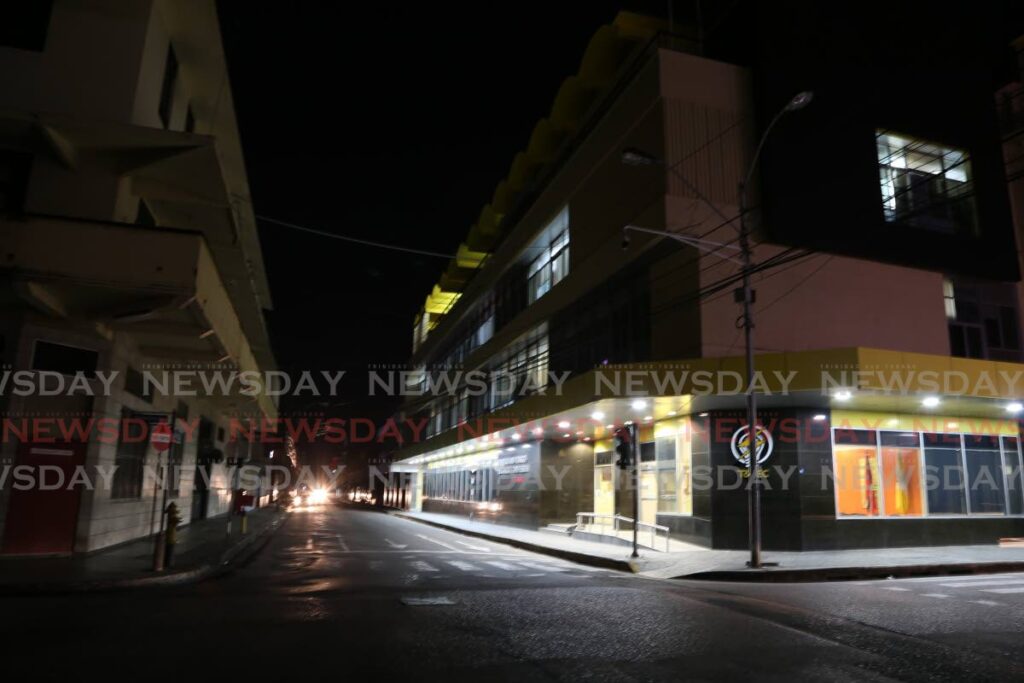Court: No salary increase for T&TEC workers for 2015-2017

WORKERS at the Trinidad and Tobago Electricity Commission (T&TEC) will not get a salary increase for the period 2015 to 2017 after the Industrial Court ruled that it would be too expensive for T&TEC to pay at this time.
The judgment was delivered on February 18 by a three-member team comprisingLawrence Achong, chairman of the essential services division and members Vincent Cabrera and Michelle Austin.
The workers were represented by the Oilfield Workers Trade Union (OWTU), which requested a 12 per cent wage increase along with a cost-of-living-allowance increase of four cents.
In delivering its decision, the panel said: “While we are convinced that the union is deserving of an increase in salary under normal circumstances, we are equally convinced that the commission is not in a position to pay anything at this point in time. Should the court make an award in favour of the union and the commission is forced to pay, the logical result will be retrenchment.”
The 50 page judgment said T&TEC is currently owed $1.38 billion, of which $964 million is for arrears, by various ministries and state agencies.
In its own submission the union suggested that T&TEC raise its rates in order to earn more so that the company can pay workers an increased salary. OWTU argued that the last increase in electricity rates was in 2005.
“It is of the view of this union that the big-ticket items that are required to turn the commission around are: (i) Charging economic rates for light and power. (ii) Fixing the onerous power-purchase agreements between the commission and its bulk suppliers. (iii) Negotiations for a more reasonable gas price from the National Gas Company (NGC).”
T&TEC submitted that, as a state body, it could only act on the direction of Government and the company had received no instructions to counter offer the union’s suggested 12 per cent increase or its suggestions on how to raise revenue.
The judgment panel said the union, while arguing that the increased wages would cost T&TEC $51 million a year going forward, it failed to take into consideration the back pay that would be due, not only on the salaries but on COLA and other allowances.
The panel also agreed that with a yearly expense of $ 4.2 billion and an annual income of $3.2 billion, T&TEC was operating at a loss and could not afford any increases at this time. It agreed that had T&TEC been profitable for a period and experienced hardships during the pandemic, the panel's decision might have been different.
The court ruled that to pay increased wages of yesteryear must be done in consideration of today’s financial ability and T&TEC is just not able to do so.
As a result of T&TEC’s financial constraints, the panel ruled that for the period in questions, workers are to be given no increase.
In a media release on Monday, the OWTU claimed there was political interference in the court's decision.
“We recognise the political intent behind establishing the Industrial Court, ie, removing workers’ rights to take direct action in their own interest and placing that power within the State. When the State sides with employers and is itself an employer, where can workers receive justice? Only on the streets!”
The OWTU said it was faced with the “absurd result” of looking at today’s economic conditions to decide that workers cannot be paid increased salaries retroactively.
“Is it 'just' for workers to live on 2014 salaries in 2022? Is it 'fair' for employers to drag out matters at the Industrial Court for years? Is it 'just' for the State to not pay its bills and for T&TEC to pass on that cost to workers?”
OWTU said the financial struggles of T&TEC were not the fault of the workers yet they were being made to bear the burden.
"The workers of T&TEC cannot afford to be the PNM’s scapegoat for mismanagement by the senior managers, the board and the government."
Blaming the government for the financial state of T&TEC, the union said it was because of incompetence in negotiating with multi-national corporations and government's refusal not to pay T&TEC that workers would not receive an increase in salary for the allotted period.
The union argued that it did all it could to settle the negotiations within the specified period and still was unable to achieve an increase for workers.
In wrapping up their decision, the industrial court judges said: “We find that the need to, prevent the loss of any jobs at T&TEC; give the company all the opportunity to better its financial position; reduce T&TEC’s dependency on an already-overburdened Exchequer; and allow the commission to continue its operations in providing a reliable service to the country far exceeds the necessity to make an award which will increase the salary and allowances of the workers in these trying economic times.
"The commission seems to be facing bankruptcy, to all intents and purposes, were it not for the financial support from the State. The court must give consideration to this fact.”


Comments
"Court: No salary increase for T&TEC workers for 2015-2017"